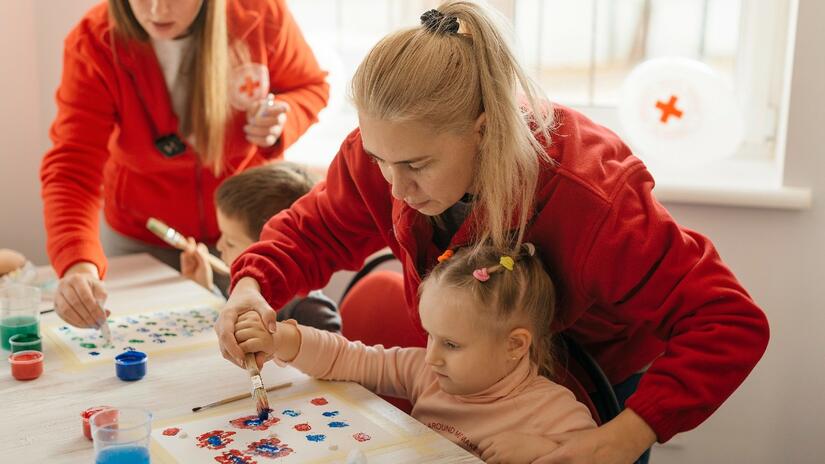Geneva / Budapest / Kyiv 23 February 2023 - The psychological wounds of the international armed conflict in Ukraine are adding another cruel layer of pain to people already struggling to cope with shelter, hunger, and livelihoods needs, warns the International Federation of Red Cross and Red Crescent Societies (IFRC).
As the effects of the last year continue to impact families, the IFRC network is running the biggest humanitarian response in its history. With a CHF 1.6 billion appeal spanning 58 countries, the IFRC network has reached more than two million people with medical care, mental health support and shelter; and so far has distributed more than CHF 87 million in cash assistance to bring choice and dignity to families who have lost everything. A total of 42 IFRC member National Societies are engaged in activities supporting people from Ukraine, domestically.
IFRC Secretary General, Jagan Chapagain, said:
“This grueling year has devastated the lives of millions of people and that brings with it psychological harm as significant as physical injury. We are preparing to expand our mental health interventions alongside cash, shelter, medical care and urgent assistance to help people manage the harsh winter with power cuts and water shortages.”
Red Cross and Red Crescent teams are working everywhere—from bomb shelters in Bakhmut to refugees’ new homes across borders—and have provided more than a million people with psychosocial support since February 2022. As time marches on, more must be done to address mental health.
“Trauma knows no borders: those in Ukraine and those who have fled are equally in need of comfort, stability, and a sense of normalcy,” remarked Mr. Chapagain.
The Ukrainian Red Cross has provided psychosocial support to hundreds of thousands of people since the start of the conflict’s escalation. An additional 34 IFRC member National Societies are delivering specialist help to hundreds of thousands who have sought safety in other countries.
Ukrainian Red Cross Director General, Maksym Dotsenko, said:
“They have lost loved ones, homes, jobs, everything—this is devastating enough. People’s lives are in limbo and this anguish is eating them up inside, compounding the mental health crisis even further.
“Helping families find coping mechanisms, treatment and support is crucial for us. We are training people on how to respond to mental health emergencies and this training is happening in bomb shelters and basements.”
In neighbouring countries, IFRC member National Societies are receiving a growing number of pleas for mental health help via their community feedback systems.
“We are a long way away from recovery for people from Ukraine, but ensuring support for mental health, alongside cash support, protection and other basic services is a way we can contribute to that eventual recovery,” said Mr. Chapagain.
Over the past year, the IFRC network has mobilized more than 124,000 volunteers to respond to urgent needs of people affected by this international armed conflict.
For more information, please contact:
In Kyiv: Nichola Jones, +44 7715 459956
In Budapest: Corrie Butler, +36 70 430 6506
In Geneva: Jenelle Eli, +1 202 603 6803
A/V materials available to media on the IFRC Newsroom.
Note to editors:
In a regional initiative to meet the massive need for mental health support, National Red Cross Societies in Ukraine and 24 countries across the EU/EEA have joined forces to provide mental health and psychosocial support services to more than 590,000 people over the course of three years. Target audiences include displaced people in Ukraine and impacted EU countries, caregivers, children, older persons, people with disabilities, host communities, as well as Red Cross volunteers and staff. Funded by the European Union and with technical assistance from the IFRC and the IFRC Psychosocial Centre, the EU4Health project connects vulnerable people with mental health professionals and volunteers from the 25 National Societies.





